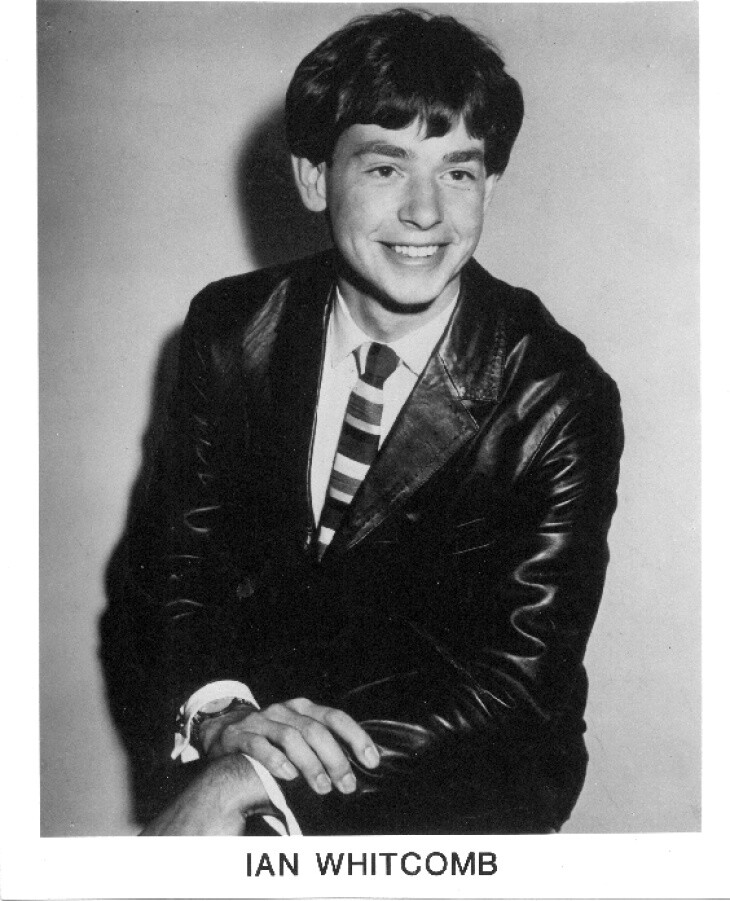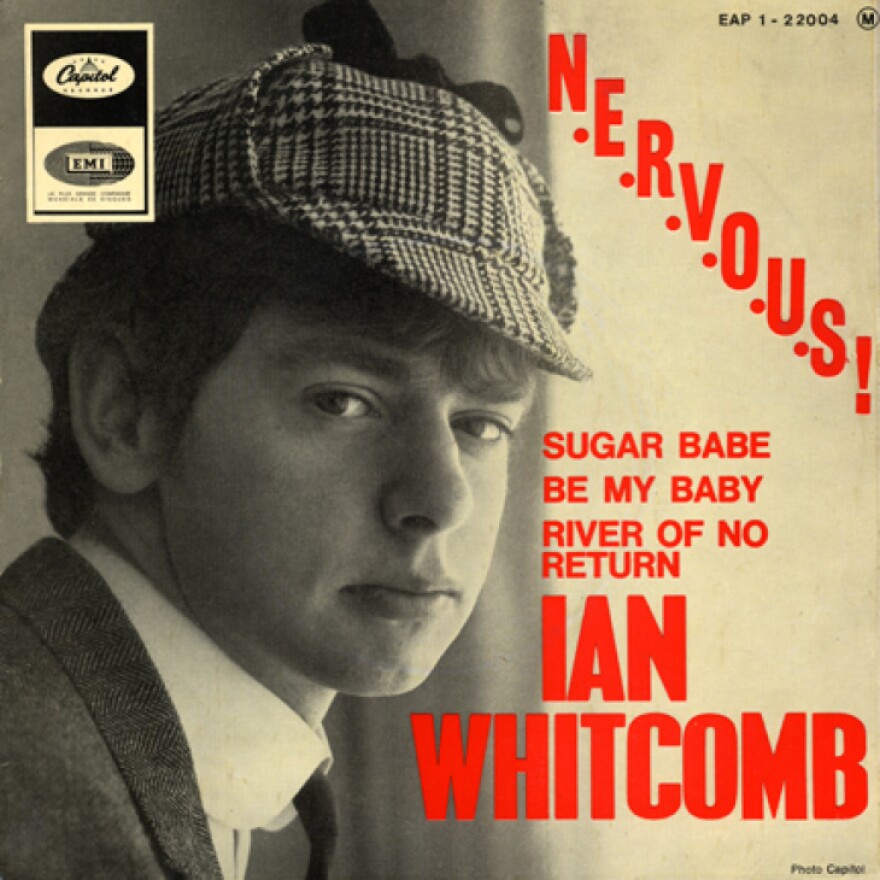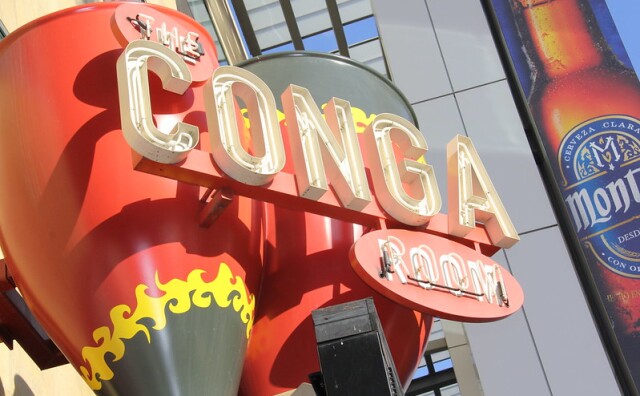Our news is free on LAist. To make sure you get our coverage: Sign up for our daily newsletters. To support our non-profit public service journalism: Donate Now.
A verse from Ian Whitcomb's only real pop hit, 1965's "You Turn Me On," gives you a hint why he turned his back on pop music:
Come on now honey you know you really turn me on
Come on now honey you know you really turn me on
And when and when you do
Uh huh huh huh uh uh. That's my song.
Cole Porter it ain't, but it shot to #8. After a second, minor hit, Whitcomb devoted his life to songs with a little more musical and lyrical complexity.

Whitcomb died April 19 of complications from a stroke he suffered in 2012.
"I last visited Ian a few months ago when he was convalescing," says Larry Mantle, who hosts KPCC's public affairs show AirTalk. "Even during a grueling session with his physical therapist, he was focused on what I'd been up to, and entertaining me with witty observations. Ian had many friends and fans. He's an irreplaceable personality."
When he appeared on my weekend radio show, Off-Ramp, in 2012, that personality was on display.
"I was the Justin Bieber of my time, you've seen the photographs," Whitcomb said of his moment in the top 10. "The point is that the record company, Capitol Records, wanted a follow-up, but we just couldn't find anything. We had a song called "N-Nervous,' but it didn't really do the trick. My heart wasn't in rock 'n' roll anymore ... It was becoming psychedelic and it wasn't my field."
"I always had a ukulele, I used to take the ukulele on the bus, on these tours. Then one day, a group called The Turtles -- who were on tour with me -- said, 'Ian, those songs that you sing are really funny, why don't you record them?' So I did, I went in and recorded 'Where Did Robinson Crusoe Go,' and I've been recording that kind of song ever since, and so my career has gone backwards."
That song's full title is "Where Did Robinson Crusoe Go With Friday on Saturday Night." It was arranged by composer, producer and performer Van Dyke Parks, who called his old friend, "Our best Brit observer of such a broad compass of American music."
Even, so, he said of the song:
"Perhaps more people played on it than heard it, but it was a fey tonic of tropical splendor."
He played the tunes he loved on "The Ian Whitcomb Show" on KPCC in the 1990s, when it was an eclectic music station. (The show was previously on KROQ and KCRW.) He maintained two dance bands in the 2000s, and in 1998, conducted the White Star Orchestra in "Titanic: Music As Heard On The Fateful Voyage," which won a Grammy for design and a nomination for his liner notes.
In a Facebook post just three days before he died, Whitcomb's wife, Regina, wrote: "While Ian enjoyed his minutes of fame, it's you, those people he saw in the audience/dance floor/lectures and connected with that he carries in his heart. Every note, lyric, book, liner note, he wrote these to share with you -- not to line his pockets with cash."
Listen to my 2012 interview below:







